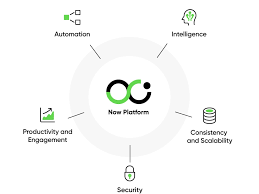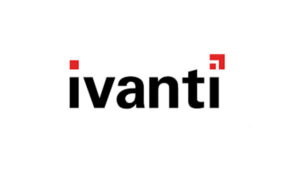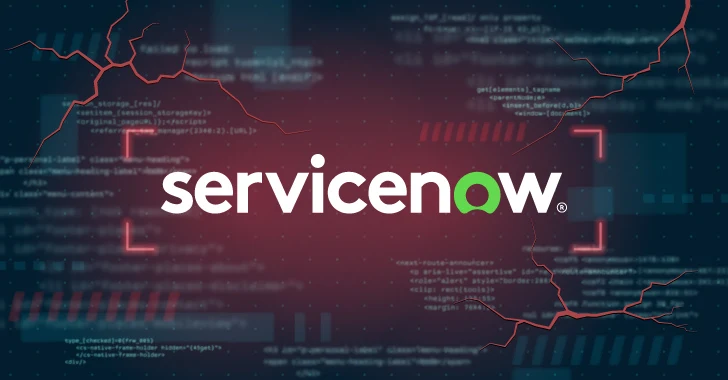ServiceNow is a cloud computing company that has revolutionized the way organizations manage their digital workflows and operations. Founded in 2004 by Fred Luddy in Santa Clara, California, ServiceNow has grown to become a global leader in providing cloud-based platforms for IT service management (ITSM), IT operations management (ITOM), and IT business management (ITBM). The company’s mission is to make work, work better for people by digitizing and automating various business processes across different departments within an organization.

At its core, ServiceNow offers a platform-as-a-service (PaaS) solution that allows companies to create digital workflows for enterprise operations. This platform is designed to streamline and automate complex business processes, improve service levels, and increase operational efficiencies. The company’s flagship product, the Now Platform, serves as the foundation for all its applications and services.

The Now Platform is built on a single architecture and data model, which allows for seamless integration across various modules and applications. This unified approach enables organizations to break down silos between departments and create a more cohesive and efficient operational environment. The platform’s key strength lies in its ability to adapt to the specific needs of each organization, offering customizable workflows and applications that can be tailored to address unique business requirements.
ServiceNow’s offerings span across several key areas:
- IT Service Management (ITSM): This is where ServiceNow initially made its mark. The ITSM suite helps IT departments manage and deliver services to employees and customers more effectively. It includes features for incident management, problem management, change management, and service catalog management.
- IT Operations Management (ITOM): This suite focuses on optimizing IT infrastructure and operations. It includes tools for event management, service mapping, discovery, and orchestration, helping organizations to maintain a clear view of their IT landscape and automate routine tasks.
- IT Business Management (ITBM): This suite helps align IT initiatives with business objectives. It includes project portfolio management, application portfolio management, and financial management tools.
- Customer Service Management (CSM): This offering extends ServiceNow’s capabilities beyond IT, helping organizations improve customer service experiences across various channels.
- Human Resources Service Delivery (HRSD): This suite digitalizes HR processes, making it easier for employees to access HR services and for HR departments to manage requests efficiently.
- Security Operations: This suite helps organizations respond to security incidents more effectively, automating security workflows and improving threat intelligence.
One of ServiceNow’s key differentiators is its emphasis on creating a single system of record for enterprise service management. This approach allows organizations to consolidate their operational data and processes onto a single platform, providing a unified view of the entire organization’s services and operations. This consolidation not only improves efficiency but also enhances decision-making capabilities by providing comprehensive, real-time insights.
The company’s growth trajectory has been remarkable. Since its initial public offering (IPO) in 2012, ServiceNow has consistently outperformed market expectations, becoming one of the fastest-growing enterprise software companies in the world. Its success can be attributed to several factors, including its innovative product offerings, strong customer focus, and ability to adapt to changing market needs.
ServiceNow’s customer base includes a significant portion of the Fortune 500 companies, as well as thousands of other organizations across various industries and sectors. The platform’s versatility allows it to cater to the needs of diverse industries, including healthcare, financial services, government, education, and manufacturing.
In recent years, ServiceNow has been at the forefront of incorporating artificial intelligence (AI) and machine learning (ML) into its platform. The company’s AI engine, called Now Intelligence, is designed to deliver predictive intelligence, improve decision-making, and automate routine tasks. This focus on AI and ML aligns with the broader industry trend towards intelligent automation and reflects ServiceNow’s commitment to continual innovation.
ServiceNow’s impact extends beyond just improving operational efficiencies. By digitizing and automating workflows, the platform enables organizations to enhance employee experiences and customer satisfaction. It allows employees to focus on more strategic, value-added tasks by freeing them from routine, repetitive work. For customers, it means faster resolution of issues and more personalized service experiences.
The company’s success has not gone unnoticed in the tech industry. ServiceNow has consistently been recognized as a leader in various Gartner Magic Quadrants, including those for IT Service Management Tools and Enterprise High-Productivity Application Platform as a Service.
Looking towards the future, ServiceNow is well-positioned to capitalize on the growing trend of digital transformation across industries. As organizations increasingly recognize the need to modernize their operations and improve service delivery, the demand for comprehensive digital workflow solutions is likely to grow.
Top Competitors and Alternatives of ServiceNow
In the dynamic world of IT service management (ITSM), ServiceNow stands out as a leader, known for its robust solutions and streamlined workflows. However, exploring top competitors and alternatives like Salesforce, BMC Helix, and Jira Service Management reveals unique strengths and features that might better suit your organization’s needs. This article delves into these leading contenders, comparing their key attributes to help you make an informed choice for your ITSM requirements.
1. Salesforce

Website – https://www.salesforce.com/
Salesforce, primarily known as a leading customer relationship management (CRM) platform, has significantly expanded its capabilities to include enterprise service management solutions, positioning itself as a strong competitor to ServiceNow. Salesforce’s Sales Cloud and Service Cloud offer robust CRM tools and customer service management with omnichannel support, making it ideal for organizations that prioritize customer engagement and sales automation. Additionally, Salesforce’s AppExchange marketplace provides a vast array of third-party integrations, enhancing its flexibility and adaptability to various business needs. However, Salesforce’s strengths lie more in its CRM and customer service capabilities rather than in IT service management (ITSM), which is ServiceNow’s core focus.
On the other hand, ServiceNow excels in ITSM and enterprise service management (ESM), providing comprehensive solutions for IT operations, workflow automation, and service delivery. ServiceNow’s platform is built specifically to manage and automate IT services, making it a preferred choice for organizations with complex IT environments. Its strengths include advanced automation, incident management, and a highly customizable workflow engine tailored to IT needs. However, while ServiceNow integrates well with various third-party applications, it may not offer the same breadth of CRM and customer engagement tools that Salesforce provides. Therefore, organizations must evaluate their priorities—whether they need a robust ITSM solution (favoring ServiceNow) or a powerful CRM and customer service platform with IT capabilities (favoring Salesforce).
Comparative Summary
| Feature | Salesforce | ServiceNow |
|---|---|---|
| Primary Strengths | CRM, Customer Service, Sales Automation | ITSM, Workflow Automation, IT Operations |
| Core Offerings | Sales Cloud, Service Cloud, AppExchange Marketplace | IT Service Management, Incident Management, Workflow Engine |
| Customization | Highly customizable with extensive third-party integrations | Highly customizable for IT workflows and service management |
| Weaknesses | Less focused on ITSM compared to ServiceNow | Limited CRM and customer engagement tools compared to Salesforce |
| Ideal For | Organizations prioritizing CRM and customer service | Organizations with complex IT environments and service management needs |
In summary, Salesforce is an excellent choice for businesses seeking powerful CRM and customer service capabilities, while ServiceNow is ideal for those needing a specialized ITSM platform. Both have unique strengths that cater to different organizational priorities.
2. BMC Helix

Website – https://www.bmc.com/it-solutions/bmc-helix.html
BMC Helix is a comprehensive IT service management (ITSM) platform that leverages AI and automation to enhance service delivery and efficiency, positioning itself as a strong competitor to ServiceNow. BMC Helix’s AI-powered service desk and cognitive automation capabilities allow for predictive insights and the automation of routine tasks, significantly reducing manual effort and improving service efficiency. Additionally, BMC Helix offers robust multi-cloud management features, making it an ideal choice for organizations operating in diverse cloud environments. However, while BMC Helix excels in automation and AI-driven service management, it may have a steeper learning curve for users unfamiliar with its interface and functionalities.
ServiceNow, on the other hand, is a leading ITSM and enterprise service management (ESM) platform known for its extensive capabilities in managing IT operations and automating workflows. ServiceNow’s platform is highly customizable and specifically designed to handle complex IT environments, making it a preferred choice for large enterprises. Its strengths include advanced incident management, a powerful workflow engine, and seamless integration with various third-party applications. However, ServiceNow might not offer the same level of AI-driven automation and predictive analytics as BMC Helix, and its cost can be higher, which might be a consideration for some organizations. Therefore, businesses must evaluate their specific needs—whether they require an AI-powered, highly automated service management platform (favoring BMC Helix) or a comprehensive, customizable ITSM solution with strong integration capabilities (favoring ServiceNow).
Comparative Summary
| Feature | BMC Helix | ServiceNow |
|---|---|---|
| Primary Strengths | AI-Powered Service Desk, Cognitive Automation | ITSM, Workflow Automation, IT Operations |
| Core Offerings | AI and Automation, Multi-Cloud Management | IT Service Management, Incident Management, Workflow Engine |
| Customization | Strong in AI-driven automation, Predictive Analytics | Highly customizable for IT workflows and service management |
| Weaknesses | Steeper learning curve, Interface familiarity | May lack the same level of AI-driven automation, Higher cost |
| Ideal For | Organizations needing AI and automation in ITSM | Organizations with complex IT environments and service management needs |
In summary, BMC Helix is ideal for businesses seeking AI-powered automation and multi-cloud management capabilities, while ServiceNow is best suited for those needing a comprehensive, customizable ITSM platform. Both platforms offer unique strengths tailored to different organizational priorities.
3. Cherwell Service Management

Website – https://www.ivanti.com/company/history/cherwell
Cherwell Service Management is a flexible and powerful IT service management (ITSM) solution that stands as a strong competitor to ServiceNow, particularly due to its ease of customization and user-friendly interface. Cherwell’s low-code customization allows organizations to easily tailor workflows and processes without extensive coding knowledge, making it accessible for businesses of various sizes. Additionally, its self-service portal and comprehensive IT asset management capabilities empower users and improve operational efficiency. However, Cherwell may lack the advanced automation and extensive third-party integrations that ServiceNow offers, which can be a drawback for organizations with more complex IT environments.
ServiceNow, renowned for its extensive ITSM and enterprise service management (ESM) capabilities, excels in managing and automating complex IT operations. ServiceNow’s platform is built to handle intricate workflows and provide advanced incident management, making it ideal for large enterprises with sophisticated IT needs. Its strengths include a highly customizable workflow engine, seamless third-party integrations, and robust automation features. However, ServiceNow’s complexity and higher cost can be a barrier for smaller organizations or those with less technical expertise, compared to the more straightforward and cost-effective Cherwell platform. Therefore, businesses must weigh their needs—whether they require a highly customizable and user-friendly ITSM solution (favoring Cherwell) or a robust, enterprise-level platform with advanced capabilities (favoring ServiceNow).
Comparative Summary
| Feature | Cherwell Service Management | ServiceNow |
|---|---|---|
| Primary Strengths | Low-Code Customization, User-Friendly Interface | ITSM, Workflow Automation, IT Operations |
| Core Offerings | Self-Service Portal, IT Asset Management | IT Service Management, Incident Management, Workflow Engine |
| Customization | Easily customizable with low-code approach | Highly customizable for complex IT workflows |
| Weaknesses | Lacks advanced automation, Fewer integrations | Higher complexity, Higher cost |
| Ideal For | Small to mid-sized organizations needing user-friendly ITSM | Large enterprises with complex IT environments and advanced needs |
In summary, Cherwell Service Management is ideal for small to mid-sized businesses seeking a customizable and user-friendly ITSM solution, while ServiceNow is best suited for large enterprises requiring robust ITSM capabilities and advanced automation. Both platforms cater to different organizational priorities and needs.
4. Jira Service Management (formerly Jira Service Desk)

Website – https://www.atlassian.com/software/jira/service-management
Jira Service Management, formerly known as Jira Service Desk, is a competitive alternative to ServiceNow, particularly for organizations that prioritize collaboration between IT and development teams. Jira Service Management integrates seamlessly with Atlassian’s suite of tools, such as Jira Software and Confluence, providing a cohesive environment for managing IT services and fostering DevOps practices. Its key strengths include efficient incident management, streamlined change management processes, and customizable workflows that support agile methodologies. However, Jira Service Management may not offer the same breadth of IT service management (ITSM) features and scalability as ServiceNow, which could be a limitation for larger enterprises with more complex IT environments.
ServiceNow, a leader in ITSM and enterprise service management (ESM), excels in managing complex IT operations and automating workflows. ServiceNow’s platform provides comprehensive incident management, a powerful workflow engine, and extensive third-party integrations, making it ideal for large enterprises with sophisticated IT needs. Its strengths include advanced automation capabilities, highly customizable workflows, and robust ITSM features that can handle large-scale IT operations. However, ServiceNow’s higher cost and complexity might be a barrier for smaller organizations or those with fewer technical resources, in contrast to the more cost-effective and user-friendly Jira Service Management platform. Thus, businesses must evaluate their specific needs—whether they require a tool that enhances collaboration and supports agile methodologies (favoring Jira Service Management) or a robust, enterprise-level ITSM solution (favoring ServiceNow).
Comparative Summary
| Feature | Jira Service Management | ServiceNow |
|---|---|---|
| Primary Strengths | Integration with Atlassian tools, DevOps-friendly | ITSM, Workflow Automation, IT Operations |
| Core Offerings | Incident Management, Change Management, Agile Support | IT Service Management, Incident Management, Workflow Engine |
| Customization | Customizable workflows for agile methodologies | Highly customizable for complex IT workflows |
| Weaknesses | Less comprehensive ITSM features, Limited scalability | Higher cost, Greater complexity |
| Ideal For | Organizations prioritizing collaboration and agile practices | Large enterprises with complex IT environments and advanced needs |
In summary, Jira Service Management is ideal for organizations that prioritize collaboration and agile methodologies, offering seamless integration with Atlassian tools, while ServiceNow is best suited for large enterprises needing a robust ITSM platform with advanced automation capabilities. Both platforms offer unique strengths tailored to different organizational needs.
5. Ivanti IT Asset Management Suite

Website – https://www.ivanti.com/products/ivanti-neurons-itam
Ivanti IT Asset Management Suite is a comprehensive platform that competes with ServiceNow by providing integrated IT asset management (ITAM), IT service management (ITSM), and endpoint security solutions. Ivanti’s strengths lie in its ability to unify IT operations by combining IT asset management with service desk capabilities and robust endpoint security, making it an ideal choice for organizations looking to streamline and secure their IT environments. The suite’s automation features and strong focus on asset lifecycle management ensure efficient and secure handling of IT assets. However, Ivanti may not offer the same depth of ITSM functionalities or the extensive third-party integrations that ServiceNow provides, which can be a limitation for organizations with more complex IT service management needs.
ServiceNow, on the other hand, is renowned for its extensive ITSM and enterprise service management (ESM) capabilities, excelling in managing and automating complex IT operations. ServiceNow’s platform offers advanced incident management, a powerful workflow engine, and seamless third-party integrations, making it suitable for large enterprises with sophisticated IT requirements. Its strengths include highly customizable workflows, extensive ITSM features, and strong automation capabilities that cater to large-scale IT operations. However, ServiceNow’s higher cost and complexity might be a barrier for smaller organizations or those with fewer technical resources, in contrast to Ivanti’s more integrated and potentially cost-effective approach to IT asset and service management. Thus, businesses must evaluate their specific needs—whether they require a unified ITAM and ITSM solution with strong security features (favoring Ivanti) or a robust, enterprise-level ITSM platform (favoring ServiceNow).
Comparative Summary
| Feature | Ivanti IT Asset Management Suite | ServiceNow |
|---|---|---|
| Primary Strengths | Integrated ITAM, ITSM, Endpoint Security | ITSM, Workflow Automation, IT Operations |
| Core Offerings | IT Asset Management, Service Desk, Endpoint Security | IT Service Management, Incident Management, Workflow Engine |
| Customization | Automation and asset lifecycle management | Highly customizable for complex IT workflows |
| Weaknesses | Less comprehensive ITSM functionalities, Fewer integrations | Higher cost, Greater complexity |
| Ideal For | Organizations seeking unified ITAM and ITSM with strong security | Large enterprises with complex IT environments and advanced needs |
In summary, Ivanti IT Asset Management Suite is ideal for organizations seeking an integrated ITAM, ITSM, and security solution, while ServiceNow is best suited for large enterprises needing a robust ITSM platform with advanced automation and integration capabilities. Both platforms offer unique strengths tailored to different organizational priorities.
6. Zendesk

Website – https://www.zendesk.com/
Zendesk, known primarily for its customer service and engagement solutions, competes with ServiceNow by offering IT service management (ITSM) capabilities alongside its robust CRM functionalities. Zendesk’s strengths lie in its user-friendly interface and strong focus on customer support, offering features like ticketing systems, self-service portals, and multi-channel support for communication. It provides intuitive tools that enhance customer interaction and satisfaction, making it suitable for organizations prioritizing customer service excellence. However, Zendesk may not offer the same depth of ITSM features or scalability as ServiceNow, which could be a limitation for larger enterprises or those with complex IT service management needs.
ServiceNow, on the other hand, is renowned for its comprehensive ITSM and enterprise service management (ESM) capabilities, excelling in managing and automating complex IT operations. ServiceNow’s platform offers advanced incident management, a powerful workflow engine, and seamless third-party integrations, making it ideal for large enterprises with sophisticated IT requirements. Its strengths include highly customizable workflows, extensive ITSM features, and strong automation capabilities that cater to large-scale IT operations. However, ServiceNow’s higher cost and complexity might be a barrier for smaller organizations or those primarily focused on customer service management, where Zendesk could provide a more cost-effective and user-friendly alternative. Thus, organizations must assess their specific needs—whether they prioritize comprehensive ITSM capabilities (favoring ServiceNow) or streamlined customer service management (favoring Zendesk).
Comparative Summary
| Feature | Zendesk | ServiceNow |
|---|---|---|
| Primary Strengths | Customer Service, Ticketing Systems, Multi-Channel Support | ITSM, Workflow Automation, IT Operations |
| Core Offerings | Customer Support Tools, Self-Service Portals | IT Service Management, Incident Management, Workflow Engine |
| Customization | User-friendly interface, Customer Interaction Tools | Highly customizable for complex IT workflows |
| Weaknesses | Less comprehensive ITSM features, Limited scalability | Higher cost, Greater complexity |
| Ideal For | Organizations prioritizing customer service excellence | Large enterprises with complex IT environments and advanced needs |
In summary, Zendesk is ideal for organizations focused on customer service management and engagement, while ServiceNow is best suited for large enterprises needing a robust ITSM platform with advanced automation and integration capabilities. Each platform offers unique strengths tailored to different organizational priorities.
7. Freshservice

Website – https://www.freshworks.com/freshservice/
Freshservice competes with ServiceNow by offering a user-friendly and cost-effective IT service management (ITSM) solution that caters to the needs of small to medium-sized businesses. Freshservice excels in simplicity and ease of use, providing a modern and intuitive interface for managing IT services, incident management, and service catalog. Its strengths include quick setup, affordable pricing, and strong integration capabilities with other Freshworks products and third-party applications. However, Freshservice may lack the advanced customization options and scalability needed for larger enterprises with complex IT environments, which is where ServiceNow typically shines.
ServiceNow, renowned for its extensive ITSM and enterprise service management (ESM) capabilities, offers a robust platform for managing and automating complex IT operations. ServiceNow’s strengths include advanced incident management, a powerful workflow engine, and seamless third-party integrations, making it suitable for large enterprises with sophisticated IT requirements. It provides highly customizable workflows and strong automation features that support large-scale IT operations effectively. However, ServiceNow’s higher cost and complexity can be a barrier for smaller organizations or those with less technical expertise, compared to the more accessible and cost-effective Freshservice platform. Organizations should evaluate their specific needs—whether they require a comprehensive ITSM solution (favoring ServiceNow) or a user-friendly, affordable option (favoring Freshservice).
Comparative Summary
| Feature | Freshservice | ServiceNow |
|---|---|---|
| Primary Strengths | Simplicity, Ease of Use, Quick Setup | ITSM, Workflow Automation, IT Operations |
| Core Offerings | Incident Management, Service Catalog, Integration Capabilities | IT Service Management, Incident Management, Workflow Engine |
| Customization | Limited advanced customization | Highly customizable for complex IT workflows |
| Weaknesses | Limited scalability, Less advanced features | Higher cost, Greater complexity |
| Ideal For | Small to medium-sized businesses, Cost-conscious organizations | Large enterprises with complex IT environments and advanced needs |
In summary, Freshservice is ideal for small to medium-sized businesses seeking an easy-to-use and cost-effective ITSM solution, while ServiceNow is best suited for large enterprises needing a comprehensive, customizable ITSM platform with advanced automation capabilities. Each platform offers distinct strengths tailored to different organizational needs and priorities.
8. ManageEngine ServiceDesk Plus

Website – https://www.manageengine.com/products/service-desk/
ManageEngine ServiceDesk Plus competes with ServiceNow by offering a comprehensive IT service management (ITSM) solution that combines affordability with extensive features. ServiceDesk Plus excels in its affordability and value for money, providing a robust set of ITSM capabilities including incident management, problem management, change management, and asset management. It offers ease of deployment, intuitive user interface, and strong integration capabilities with other ManageEngine products and third-party applications. However, ServiceDesk Plus may not offer the same level of scalability, advanced customization options, or breadth of integrations as ServiceNow, which can be limiting for larger enterprises with complex IT environments.
ServiceNow, renowned for its enterprise-grade ITSM and enterprise service management (ESM) capabilities, stands out with its comprehensive platform designed to manage and automate complex IT operations. ServiceNow’s strengths include advanced incident management, a powerful workflow engine, and seamless integration with a wide range of third-party applications, making it ideal for large enterprises with sophisticated IT needs. It provides highly customizable workflows and strong automation features that support large-scale IT operations effectively. However, ServiceNow’s higher cost and complexity may pose challenges for smaller organizations or those seeking a more budget-friendly ITSM solution like ManageEngine ServiceDesk Plus. Organizations must assess their specific requirements—whether they prioritize comprehensive ITSM capabilities (favoring ServiceNow) or affordability with essential ITSM functionalities (favoring ServiceDesk Plus).
Comparative Summary
| Feature | ManageEngine ServiceDesk Plus | ServiceNow |
|---|---|---|
| Primary Strengths | Affordability, Value for Money, Robust ITSM Features | ITSM, Workflow Automation, IT Operations |
| Core Offerings | Incident Management, Problem Management, Change Management, Asset Management | IT Service Management, Incident Management, Workflow Engine |
| Customization | Good customization options, Intuitive UI | Highly customizable for complex IT workflows |
| Weaknesses | Limited scalability, Fewer integrations | Higher cost, Greater complexity |
| Ideal For | Small to medium-sized businesses, Cost-conscious organizations | Large enterprises with complex IT environments and advanced needs |
In summary, ManageEngine ServiceDesk Plus is ideal for small to medium-sized businesses seeking an affordable yet comprehensive ITSM solution, while ServiceNow is best suited for large enterprises needing a robust, highly customizable ITSM platform with advanced automation capabilities. Each platform offers distinct strengths tailored to different organizational sizes and priorities.
When evaluating alternatives to ServiceNow, consider factors such as ease of use, customization options, integration capabilities, and cost. Each of these platforms offers unique features and strengths, catering to different aspects of IT service management and enterprise service management. Choose the one that best aligns with your organization’s specific requirements and goals.
Also Read: Top Salesforce Competitors and Alternatives
To read more content like this, subscribe to our newsletter




